
Peter Trudgill
15 December 2022
Why Welsh is still very much ‘still here’

The melodious singing by Wales fans at the World Cup reminds us that their language was around many years before English
Read the full article08 December 2022
Argentine stars, Italian surnames

Why do the names of Messi and Pochettino sound like they hail from closer to Bologna than to Buenos Aires?
Read the full article01 December 2022
Dalmatian: the spotters’ guide
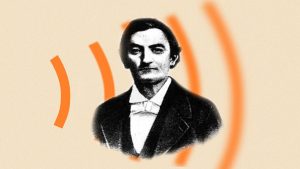
The language survived until the mid-1800s, long after most other Romance dialects in the Balkans disappeared
Read the full article24 November 2022
A rose by any other name

There is usually no link between how a word sounds and what it means. But there are some notable exceptions
Read the full article17 November 2022
Last refuges of Brittonic Celtic

The arrival of the Anglo-Saxons pushed what was once Britain’s dominant language into three unconnected regions
Read the full article10 November 2022
Where did you guys come from?

The use of the word “guy” to refer to a man came to Britain from the US in the 1950s, but its origins are far from clear
Read the full article03 November 2022
The eccentric Greek gentleman
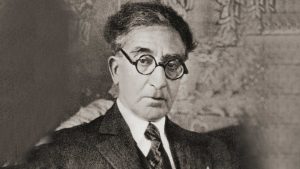
Poet Constantine Cavafy took his own linguistic path as the argument over the form of written Modern Greek raged on
Read the full article27 October 2022
The land of the midnight sun

Despite its vast size, China insists on having only one time zone. It shows the same rigid approach to language
Read the full article20 October 2022
The language of an invader
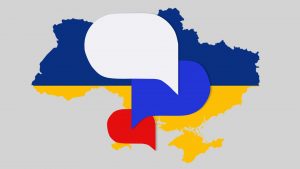
The former Soviet Union countries are full of Russian speakers… surely they don’t all need Putin’s protection?
Read the full article13 October 2022
An ancestor of modern Basque

Before the Romans arrived in south-west France along with Latin, people there spoke what we now call Aquitanian
Read the full article06 October 2022
Parliamentary fibs and fables

Lie is a strong word and many seem to prefer to use a softer version, which has its roots in a term for fictitious stories
Read the full article29 September 2022
Vanishing act in land out of time

After 81 years of silence, modern descendants of Moriori speakers in New Zealand are now pushing for more recognition
Read the full article22 September 2022
The ‘obligatory’ misuse of Italian
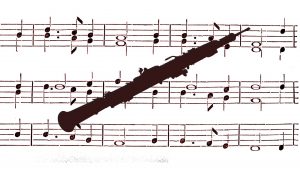
The Italian word obbligato has come to have two entirely contradictory meanings when used in English
Read the full article15 September 2022
The importance of minding P&Q

How two different forms of the Celtic language continue to influence modern surnames and pronunciations
Read the full article08 September 2022
The hidden curse of British Latin

Discoveries of tablets inscribed with curses provide an insight into the language spoken by the British lower classes
Read the full article01 September 2022
Why baize is far from evergreen

The word arrived in English in the 1500s from France along with the ‘bay-coloured cloths’ it described
Read the full article25 August 2022
Why riffs are as English as Keef

Many popular musical terms have their origins in West African languages – but ‘riff’ probably isn’t one of them
Read the full article18 August 2022
The lost tongue of the Beothuk

A 17th-century encounter between the peoples of Newfoundland and incoming Europeans had a tragic end
Read the full article11 August 2022
A certain amount of confusion

The use of ‘amount’ rather than ‘number’ when referring to plural nouns is on the increase. But is it actually wrong?
Read the full article04 August 2022
Why ‘-son’ rises in our surnames
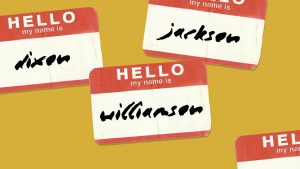
Many family names in Britain seem likely to have descended from bynames of Norwegian and Danish origin
Read the full article28 July 2022
The roots of true Taiwanese

Colonialists of all stripes have squeezed the island’s indigenous languages out in favour of Mandarin and Hokkien
Read the full article14 July 2022
The arrival of Latin in Britain

Archaeological evidence indicates the language was used in southern England before the Roman invasion of AD43
Read the full article07 July 2022
The letters we have made redundant

There are 26 letters in the English alphabet, but three of them need not be there at all. Could they be put to better use?
Read the full article30 June 2022
The slow death of Udmurt

An emphasis on Russian culture has left the languages of many small, semi-nomadic peoples vulnerable to extinction
Read the full article23 June 2022
The matter of me-avoidance

It’s all me, me, me as our linguistic expert considers a reader’s complaint about the misuse of pronouns
Read the full article16 June 2022
How a captive kept Gothic alive
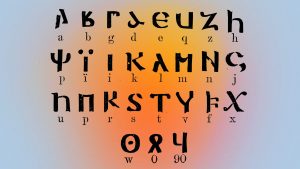
It is the only East Germanic language we have records of – and we only have those because of an accident of history
Read the full article09 June 2022
A cattle class in double French

English has a lot of words taken from French.. and some that we have ‘borrowed’ twice
Read the full article02 June 2022
Making a subtle preposition

Why do some British broadcasters appear to suffer from a linguistic inferiority complex about natural English grammar?
Read the full article26 May 2022
The demise of Comancheria

Comanche was once a powerful imperial language, but there are fewer than 100 native speakers today
Read the full article19 May 2022
Discovering a hidden dialect

A brand of English made it all the way to Iwo Jima – but linguists only found out thanks to a travel show on Japanese TV
Read the full article12 May 2022
Why Hispanos sound different

The Spanish spoken by descendants of the first Europeans to colonise the US diverges from that of Mexicans and Latinos
Read the full article05 May 2022
Settling down in unsettled lands

Charting the far-flung, uninhabited countries where English was the first language ever spoken
Read the full article